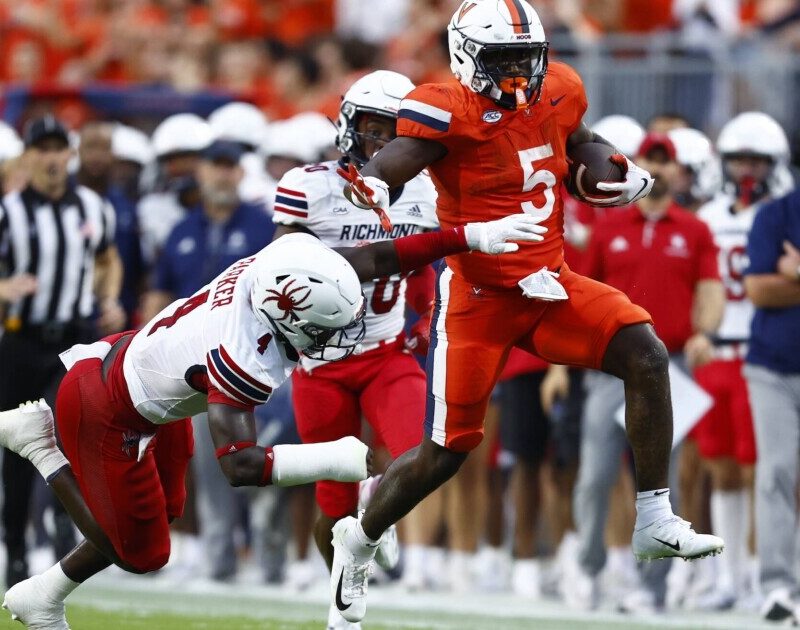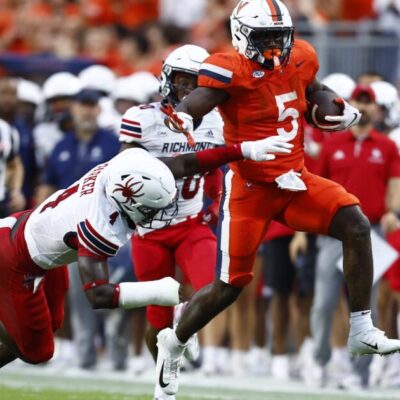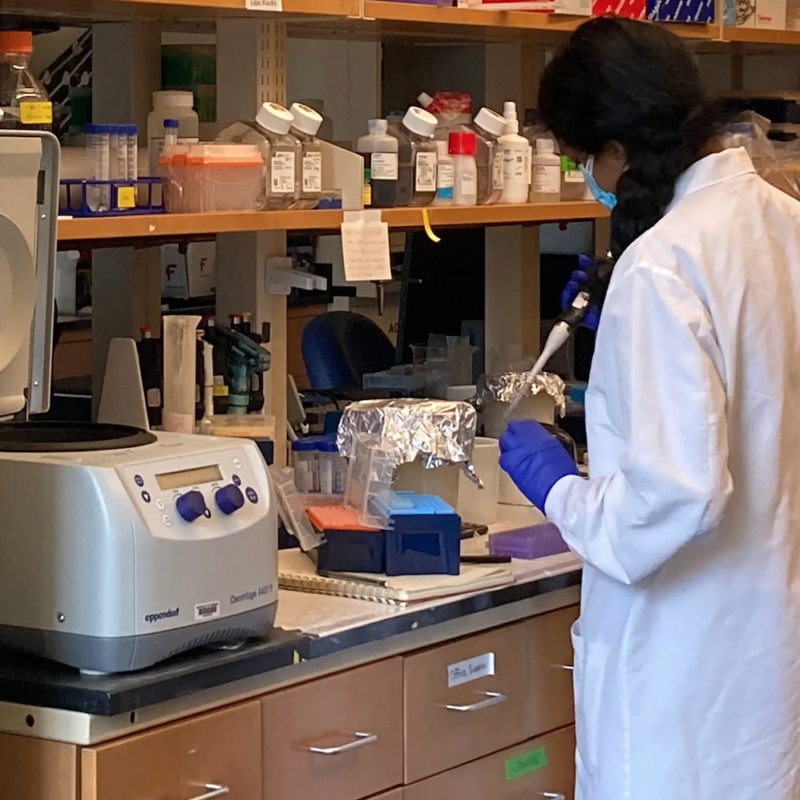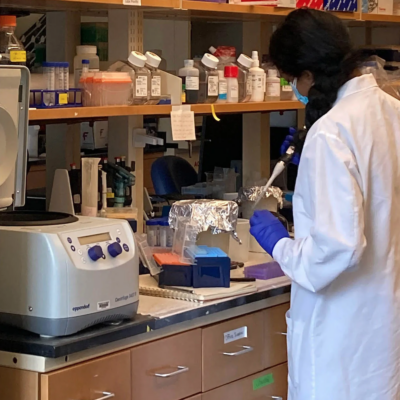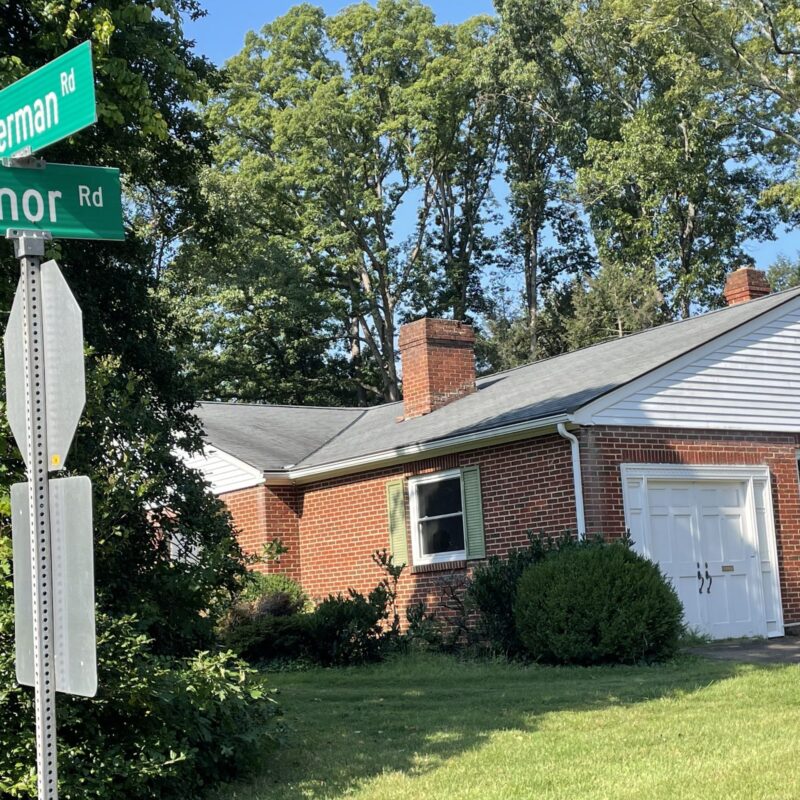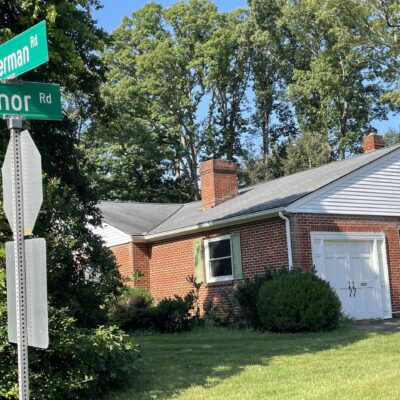When you’re going up against a six-term incumbent who has never won a congressional election by less than 19.5 percentage points, the best thing you can hope for on election night is a long wait until it’s called. But that wait reached ridiculous proportions last week as Tom Perriello found himself in electoral limbo while 22 election boards across the Fifth District tweaked their numbers.
“It’s hard to capture the emotional roller coaster,” said Perriello on Friday, November 7. After a week of nonstop campaigning and anxious waiting, he was still wired. “It looked like we had it locked up on election night. Then you wake up in the morning after two hours sleep and all the sudden you’re behind. Then you inch your way back up, and then yesterday it finally expanded.”
|
Tom Perriello got the celebrity treatment when he arrived to the Democratic party on election night, but the race was too close for him to give a real victory speech. |
It now appears that Perriello has beaten Virgil Goode by a margin of about 750 votes—a difference of 0.24 percent. Goode will have the opportunity to ask for a recount after the votes are certified on November 24, though it’s unlikely to change the outcome of the election.
No major pundit gave Perriello a chance to win. Though polls showed a tightening race in the final month, Goode’s seat was projected to stay Republican by everyone from Larry Sabato to the Cook Political Report.
Goode is a political chameleon who first ran as a Democrat in 1996, becoming an Independent and then a Republican over the course of his 12 years in Congress. Yet he wasn’t able to change his image enough this go around, falling back in the final months of this election on a steady invective against immigrants to go with negative ads that tried to tag Perriello as a “New York lawyer.”
For the record, Perriello, born and schooled in Albemarle County, never practiced law in New York—he took the bar there and used it as a base while working abroad after graduating from Yale Law. Nevertheless, he is a 34-year-old upstart who has never held political office, and yet he beat out a career politician who has made his living representing Southside Virginia.
On election night at Gravity Lounge, where hordes of local Democrats gathered after the polls closed, information was a hot commodity. Crowds formed around Blackberrys. A Cav Daily reporter found herself as popular as state Delegate David Toscano because of her laptop.
For the first few hours, hope was buoyed by Perriello’s performance in Scottsville, which he won and Obama lost, and in Martinsville, which reported all of its precincts relatively early in the evening. “He won Martinsville by 61 percent?!!” said an incredulous Cynthia Neff at 8pm. A Perriello volunteer and donor, she stood outside the cavernous music venue, driven out into a light rain by the smothering heat of so many bodies crowded inside, as a harried Gravity Lounge staffer tried to force people away from the door.
Perriello was slated to arrive at 9:30pm, but he didn’t show until 11pm. It was hard to blame him. He spent the day touring the district starting at 5:30am, hitting two dozen precincts before ending up in Danville as the polls closed. He had planned to take a plane to Charlottesville, but the weather didn’t permit. Instead, he drove the two and a half hours to Charlottesville with his campaign manager, Lise Clavel, and press secretary, Jessica Barba. The Blackberry showed they were hitting their targets, but it was also clear that the race wasn’t going to be a landslide one way or the other.
When he arrived at Gravity at 11pm, Perriello got the celebrity treatment. The crowd rushed outside as word spread that he had arrived. A flash mob encircled him, camera phones in action, as Cheryn Stone of CBS-19 tried to conduct a live interview.
At that point, the race was still too close to call, though Perriello had the lead with only six precincts left to report. Most of them, however, were in Southside counties that leaned toward Goode. It was still anyone’s race.
Inside, Perriello took the stage and delivered a four-minute speech. It wasn’t exactly a victory speech but it definitely wasn’t a concession.
“We obviously believe in making sure that every vote is counted,” said Perriello. “We are confident at the end of the day that we are going to win this thing.”
But he was sure to offer a note of conciliation, too—bipartisanship, after all, was a key plank of his campaign. “This election also needs to be about unity and bringing us together,” said Perriello. “Congressman Goode and his family have a long history of service to this district, a tradition that I strongly respect. However things play out here, we need to make sure that at the end of the day we’re Americans, we’re Virginians, and we’re focused on problem solving and not personal politics.”
It wasn’t until around midnight that the Perriello campaign went into full celebration mode. Word spread that he had broken a lead of about 2,000 votes. It was rumored that Larry Sabato had proclaimed Perriello the victor based on what was left to report.
Perriello had disappeared—people said he was taking pictures with his parents. Walking down the Mall trying to find him, I ran into a campaign worker, Zach Mayo. He had worked as a summer intern for Perriello; when summer ended, he was promoted to a paid staff position to assist Perriello.
“Did you guys win?” I asked.
“Yeah,” said Mayo. “I guess we did.”
“So is it time to celebrate or time to get some rest?”
“Oh, celebrate,” he said. But he still seemed dazed. After all those months, it was hard to believe the victory was real.
Turns out, it wasn’t—at least, not quite. The numbers that brought on the celebratory mood were actually a glitch in the Virginia Election and Registration Information System (VERIS) that happened when absentee tallies were entered at midnight in the Danville registrar’s office. The glitch screwed up numbers for nine of the city’s 17 precincts and incorrectly swung 2,130 votes in Perriello’s direction.
So when Perriello and his workers got up in the morning, a 1,800-vote lead had dropped to below 100. By 10:30am, he had fallen behind Goode by 450 votes, according to the Virginia State Board of Elections, though the Associated Press had a closer number.
The mood was somber at an 11am press conference on November 5. Brian Bills, a Perriello staffer who took off a semester from college to work for the campaign, was in the back room making calls to thank supporters, but otherwise Perriello’s office on Arlington Boulevard was tensely quiet.
|
Beer was plentiful, but info was hard to come by at Gravity Lounge on election night. |
“Right now, we’re going to take a deep breath,” said Perriello. “We think that based on what’s out there, provisional ballots and otherwise, that we’re going to pull ahead in this thing and win it at the end of the day, but we just have to make sure that every vote is counted.”
All across the district, the fight was on concerning provisional ballots. Provisional ballots are those cast by people who showed up to the polls but had some issue. Perhaps they could not prove their identification. Perhaps they thought they were registered, but in fact were not. The legitimacy of those provisional ballots is determined by localities’ three-person electoral boards, which rule behind closed doors with oversight from a Democratic and Republican rep.
When the margin in the congressional race was between six and 50 votes, it appeared that those provisional ballots would be a determining factor. But then localities started reporting significantly different numbers after combing through their figures. Charlottesville ended up giving Perriello 678 more votes after vetting its numbers. Goode got 182 from Pittsylvania’s revisions and 468 from Campbell County. Albemarle handed Perriello 104 additional votes. And so on.
The dust didn’t start settling on the election results until the end of the day on Friday, November 7. They showed Perriello with a 745-vote lead, a margin that a recount would be unlikely to melt.
“The outcome is certain,” Perriello reportedly told supporters in Martinsville on Friday. “We’ve won.” L.F. Payne, who represented the Fifth District prior to Goode’s election in 1996, will lead Perriello’s transition to office.
But the differences in the numbers were enough to give Goode a perch to denounce the results.
“With the vote counting process almost complete, it has become clear that there have been a number of reporting irregularities—including the misplacement of paper ballets [sic] and tape records from electronic machines and miscalculations in vote tallies,” said Goode by press release. “In fact, almost 20 percent of all the voting precincts in the district had reporting errors.”
“While current unofficial tallies have me trailing my opponent, these irregularities have cast doubt on the reported totals,” said Goode, insisting on “a thorough and proper vote counting process” and vowing “to fight to make sure that every single legitimate vote in the Fifth District is accurately counted and reported.”
As of press time, Goode hasn’t conceded, and will almost certainly ask for a recount when the vote is certified on November 24. History shows that a recount isn’t likely to significantly shift the margin.
When Creigh Deeds and Bob McDonnell came down to a recount in the 2005 Virginia Attorney General race with almost 2 million voters, McDonnell held a lead of 323 votes, a difference of 0.017 percent. Statistically, it was the closest election in Virginia history.
That recount changed 37 votes—in McDonnell’s favor. It seems unlikely that a recount now would change 750 votes to Goode.
So how did Perriello do what no one else had even come close to doing?
It wasn’t because of his showing in Charlottesville and Albemarle. He was sure to win those areas, and though he did significantly better than previous Democratic challenger Al Weed, our area represents only 21 percent of registered voters in the Fifth District.
What he had to do—and what he did—was win the parts of Southside with large portions of African-American voters, and stop the bleeding everywhere else. In 2006, the only localities that Weed won were Charlottesville, Albemarle, Nelson and Brunswick.
|
One of Perriello’s regrets about having such a close race was not being able to join in the historic moment of Obama’s victory by watching the speech. |
Perriello won nine out of the 22 localities, turning Buckingham, Fluvanna and Prince Edward counties blue. He hit the cities of Danville and Martinsville out of the park, winning by 16 and 23 points respectively. Both those cities have sizeable black populations. In eight of the 13 remaining localities, he narrowed the gap with Goode by 20 points or more compared to Weed in 2006.
How did he make such big gains? “The ground game was totally different,” says David Wilson, Jr., who campaigned for Perriello in Danville. “It was organized. Not only were people working for the Tom Perriello campaign, but they were also working for Tom through the Obama and Warner campaigns. That was the big difference.”
Turnout swung to Perriello’s favor, particularly since much of it was driven by supporters for Obama who also voted for Perriello. Compared to the last presidential election, turnout was actually lower in several populous localities that Goode won, like Campbell and Pittsylvania counties. (Money, of course, helped as well—see the cover story.)
As you might expect, Perriello credits his supporters. He cites an example from Danville, when a woman raced to pick up her niece and get her to the polls just before 7pm so she could vote. He also points out how they stepped up the day after the election by going to election board canvassing across the district.
“When you go back to election night,” says Perriello, “and we were already beyond exhaustion, people had spent 13 hours in the pouring rain, and then four hours watching returns—and then right about midnight we find out that we need to get people from every single county out by 8 o’clock the next morning to do this vote canvass. They had just seen Obama’s victory speech. If ever anyone deserved to go out and celebrate, it was then. And people did not hesitate.”
|
Just before 1am, Perriello gave an impromptu address at the Central Place fountain. At that point, the victory looked certain. When he woke up the next morning, the results were much closer. |
Like Perriello, Wilson was still wired two days later. And though Perriello planned to get some rest this weekend, Wilson,
a songwriter and musician, was still churning, applying to have his song, “We Must Live In Unity,” played during Obama’s inauguration.
“Tom really loves that song,” points out Wilson. “Every time he sees me, he’s always singing it.”
Considering Goode’s likely challenges to the election results, it’s unclear how much unity we will live in here in the Fifth District over the next few weeks. If Perriello is to succeed in his campaign promises, it’s up to him to lead the sing-along.
C-VILLE welcomes news tips from readers. Send them to news@c-ville.com.




